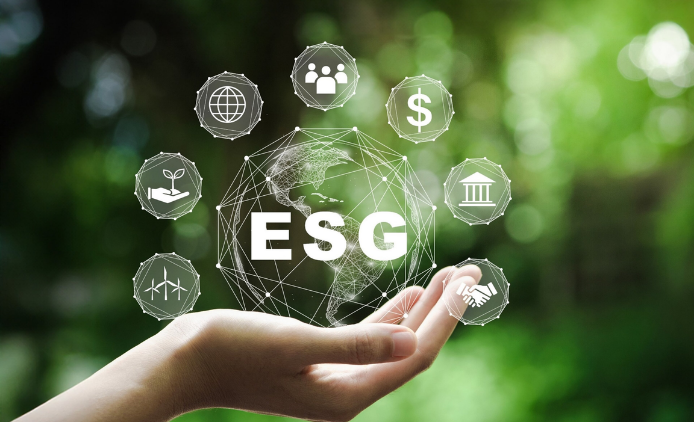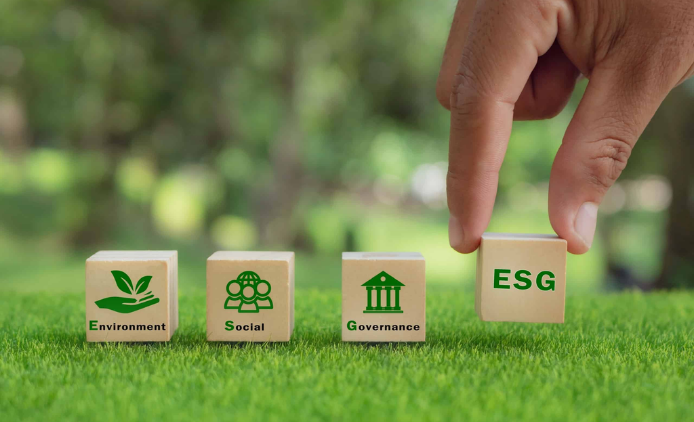

A clear, practical guide for Malaysian HR managers and corporates on ESG, why it matters, and how to start strong in 2025.
2025 is not slowing down for those clinging to outdated ways of working. It is time to get clear on your carbon footprint, strengthen how you treat your people, and make decisions that can stand up in any boardroom confidently and transparently.
ESG was once reserved for multinationals or only big listed companies. But from 2023 to 2025, SME ESG awareness jumped from 14% to 80%. This rapid shift has been driven by national ESG policies, pressure from ESG-compliant supply chains, and growing access to tax breaks and green financing. It has become a direct pathway between your business is today and where it must be to stay competitive. Companies that act early especially SMEs will lead the shift.
ESG is short for Environmental, Social, and Governance. These three dimensions shape how a business is judged by customers, banks, stakeholders, regulators, and even your own team. In Malaysia, the pressure to show good ESG practices is real. It is not just about looking good for investors. ESG means real steps that affect your daily operations, your people, and how your company is run.
A. Environmental Factors: Carbon Emissions, Energy Efficiency, and Waste Management
When people hear “ESG,” they usually think of the environment first. For a small business in Malaysia, this includes practical considerations like electricity consumption, waste disposal methods, and overall carbon emissions; your environmental footprint. The government has set a goal for net-zero carbon emissions by 2050. That is a significant shift but meaningful change often begins with small, smart steps.

For instance, one manufacturer in Selangor reviewed their monthly energy usage, replaced conventional lighting with LEDs, and optimised their air-conditioning settings. These simple changes reportedly led to an 18% reduction in electricity costs within six months. Managing your energy and waste is not just good for the environment. It is a smart business move that delivers real operational savings and long-term resilience and gives your business an operational edge.
B. Social Factors: Employee Treatment, Community Support, and Human Rights
Social factors are about how you treat people inside and outside your company. This means following labour laws, making sure the workplace is safe, and paying a fair wage. It goes further though.
Supporting the community, perhaps by hiring locals, offering skills training, or partnering with social initiatives builds trust and reputation. I recall a train-and-place project we carried out involving two logistics companies in Selangor and Johor. They opened their doors to school dropouts and youth with special needs providing them not just with structured skills training, but also meaningful employment and a supportive work environment. It was a powerful example of how businesses can uplift communities while strengthening their workforce.
This initiative reflects the ‘Social’ dimension of ESG promoting inclusion, education, and community upliftment through purposeful hiring and meaningful employment pathways.
Simple actions like these can matter more than any advertising campaign.
C. Governance Factors: Ethical Leadership, Transparency, and Accountability
Governance is the part most people ignore, but it matters a lot. It’s about who makes decisions and who is responsible when something goes wrong. Good governance means clear rules, honest reporting, and being open about things like executive pay, corruption risks, or conflict of interest.

For example, if someone forgets a safety check or makes a financial error, there should be a clear process for fixing it. In Malaysia, this means putting strict policies in place and ensuring leadership can be trusted. In the end, no one wants to work with or invest in a company that hides problems or blames others when things go wrong.
The ESG landscape in Malaysia has changed more in the last two years than in the previous decade. Rules are stricter. Expectations are higher. The government is actively pushing businesses especially SMEs to catch up.
National Policies and Government Support
Twelfth Malaysia Plan (2021–2025) puts ESG and sustainability at the core of national growth strategies.
Green Technology Master Plan and the National Energy Transition Roadmap (NETR) aim to accelerate clean energy adoption and sustainable industrial practices.
These are not just policy statements. The government is offering financial incentives, matching grants, and ESG implementation guides particularly for SMEs. Financial institutions are now linking loan approvals and credit assessments to ESG data and long-term sustainability performance
For public-listed companies, ESG reporting is no longer optional. Bursa Malaysia mandates detailed sustainability disclosures, guided by globally recognised frameworks such as:
Global Reporting Initiative (GRI)
Task Force on Climate-related Financial Disclosures (TCFD)
International Sustainability Standards Board (ISSB – IFRS S1 & S2)
In September 2024, the Securities Commission Malaysia launched the National Sustainability Reporting Framework (NSRF), adopting IFRS S1 and S2 to standardise ESG reporting nationwide.
For companies, ESG disclosures now carry the same weight as audited financial statements. Failure to comply could mean exclusion from capital markets, disrupted supply chain access, or damage to brand and stakeholder trust.
As noted earlier, ESG awareness among Malaysian SMEs has grown dramatically. But awareness is only the beginning. The next step is adoption and that is where the real challenges and opportunities lie. From time and resource constraints to limited technical knowledge, many SMEs are eager but unsure how to start.
Fortunately, more support is now available including tax incentives, green financing options, and HRD Corp-claimable ESG training tailored to SME needs. With 60% of SMEs already taking action and early adopters reporting revenue increases of up to 50%, the momentum is clearly building.
That said, many SMEs still face very real challenges:
Lack of clear guidance or technical expertise
Worries about upfront costs or added red tape
Limited staff to handle new ESG or reporting requirements
Government incentives and practical ESG training including from training providers like us at BloomSkillz are helping to close these gaps. In fact, around 40 percent of SMEs say they would adopters implement ESG practices if they had more support, whether in the form of funding, tax breaks, structured guidance or training. And here is a compelling business case: 38 percent of early adopters’ report revenue increases of over 50 percent after implementing ESG strategies. This proves that sustainability is not just the right thing to do, it is also profitable.
ESG is not just about ticking boxes. It is about business survival, continuity and growth. For Malaysian businesses, the implications are everywhere from how you attract investors to how you retain employees, maintain compliance, or expand into international markets.
1. Investor and Market Expectations: Access to Capital and Competitive Edge
Investors are watching ESG scores just as closely as financial or profit margins. In today’s business climate, ESG performance has become a key indicator of long-term viability. ESG data is now a standard component of investor due diligence, shaping decisions on equity investment, loan approvals, and partnership terms.

Companies that demonstrate credible ESG action through measurable targets, transparent reporting, and real progress are more likely to attract funding, enjoy favourable financing terms, and gain the confidence of institutional investors. These businesses are viewed as less risky, more resilient, and future-ready, particularly as capital markets move toward sustainable investment mandates.
It does notstop there. Global corporations are raising the bar for their supply chains and Malaysian SMEs are feeling the pressure. To remain in those supply networks, businesses must prove their ESG alignment, or risk being replaced by more compliant competitors.
2. Operational Benefits: Cost Savings, Risk Management, and Innovation
The benefits are not theoretical. Real-world examples continue to prove that responsible practices bring measurable results across industries in Malaysia and beyond:
Lower energy bills and reduced waste, leading to cost savings
Improved productivity and team morale, driven by purpose and transparency
Better risk management and supply chain resilience, especially in uncertain markets
More innovation, as employees feel safer, more engaged, and empowered to contribute
Across industries, companies that embed ESG principles into their operations are seeing tangible results from cutting utility bills by double digits to securing high-value contracts and attracting top-tier talent. These outcomes are no longer exceptions. They are fast becoming the new benchmark for successful, future-ready businesses.
3. Reputation and Risk: Brand Loyalty and Governance Challenges
Good ESG practices build trust. Bad ones do the opposite. Customers, regulators, and even future employees will look at your business differently if you are seen as transparent, ethical, and socially conscious. Strong ESG signals that your company is accountable, forward-thinking, and serious about long-term impact all of which influence purchasing decisions, talent attraction, and regulatory confidence.
On the other hand, poor governance or weak ESG efforts can be damaging. They open the door to public scrutiny, social media backlash, regulatory fines, and even client boycotts. In today’s digital world, one incident or gap in ESG reporting can quickly spiral into reputational damage that takes years to rebuild.
Embedding ESG into your business requires more than meeting reporting requirements or adopting surface-level policies. It calls for a strategic approach, one that is aligned with your company’s existing goals, realistic for your team to implement, and focused on delivering long-term value.

Rather than treating ESG as an add-on, businesses need to embed it into everyday decision-making, operational processes, and leadership priorities. The aim is to make ESG a core driver of performance, not a separate or siloed effort.
1. Developing ESG Strategies: Business Alignment and Goal Setting
The first step is to align your ESG strategy with your core business purpose. Many companies go wrong here because they treat ESG as a separate agenda. But effective ESG should strengthen, not distract from, your performance.
Here is how to get started:
Conduct a materiality assessment
Identify which ESG issues matter most to your business, your people, your customers, and regulators.
Set measurable, realistic targets
Example: Reduce electricity usage by 10% within 12 months, or increase female leadership representation by 30% in two years.
Secure leadership commitment
ESG success starts at the top. Senior leadership must model accountability and decision-making aligned with ESG values.
2. ESG Reporting: Data Collection, Disclosure, and Ratings
You do not need to launch with a 100-page ESG report. Start small and build consistency.
Track simple metrics like:
Monthly electricity, water, and paper usage
Staff turnover, training hours, and incident reports
Governance decisions and compliance updates
Use internationally recognised templates (e.g., GRI, TCFD) to shape your first reports. Focus on progress over perfection. Reporting is a journey, not a one-time event.
3. Global Alignment: International Standards and Market Positioning
Malaysia is not operating in a vacuum. Many international buyers and supply chains now require ESG disclosures aligned with global frameworks like:
ISSB (International Sustainability Standards Board)
IFRS S1 and S2
UN Global Compact
Aligning early with these standards gives your business a seat at larger procurement tables and strengthens your global competitiveness.
Feeling unsure or overwhelmed is completely normal but getting started with ESG does not require a big budget or a full-time sustainability team. The key is to start small, stay focused, and build from there.
Here is a practical way to begin:
Assess your current state
Review your energy bills, staff retention rates, waste management, water usage, and even supplier conduct. These baseline insights will help you understand where your business stands.
Talk to your people
Involve employees, business partners, and community stakeholders early. Their feedback provides ground-level insights and builds long-term ownership.
Focus on 2–3 priority issues
Do not try to solve everything at once. Start with what matters most for your business. For example: energy efficiency, employee well-being, or ethical sourcing.
Choose the right partners
Work with ESG consultants who understand local industries, challenges, and what works in the Malaysian context.
Track and share your small wins
Shifting to e-invoicing, cutting down on single-use plastics, improving lighting. These are small, practical changes that show progress and build momentum.
Start by assessing your current ESG baseline look at areas like energy use, waste, and workforce practices. From there, identify 2–3 key priorities that align with your business goals, educate your team, and consider enrolling in a structured programme. There are also training providers like BloomSkillz that offer HRD Corp-claimable ESG programmes designed specifically to help Malaysian SMEs to start taking their first steps toward sustainability.
In summary, ESG is no longer optional, it is a business imperative. By aligning ESG with your business goals, measuring what matters, and embedding sustainable practices into daily operations, your company stands to gain not just in reputation, but in resilience, cost-efficiency, team morale, investor appeal, and long-term profitability.
Whether you are just beginning or already on the path, the key is to start small, stay committed, and choose the right partners who understand the Malaysian business context.
BloomSkillz is here to help you start your ESG journey confidently.
Let us help you take the first step. Our HRD Corp-claimable ESG training is tailored for Malaysian SMEs. It is practical, hands-on, and designed to help you start your ESG journey with clarity and confidence.